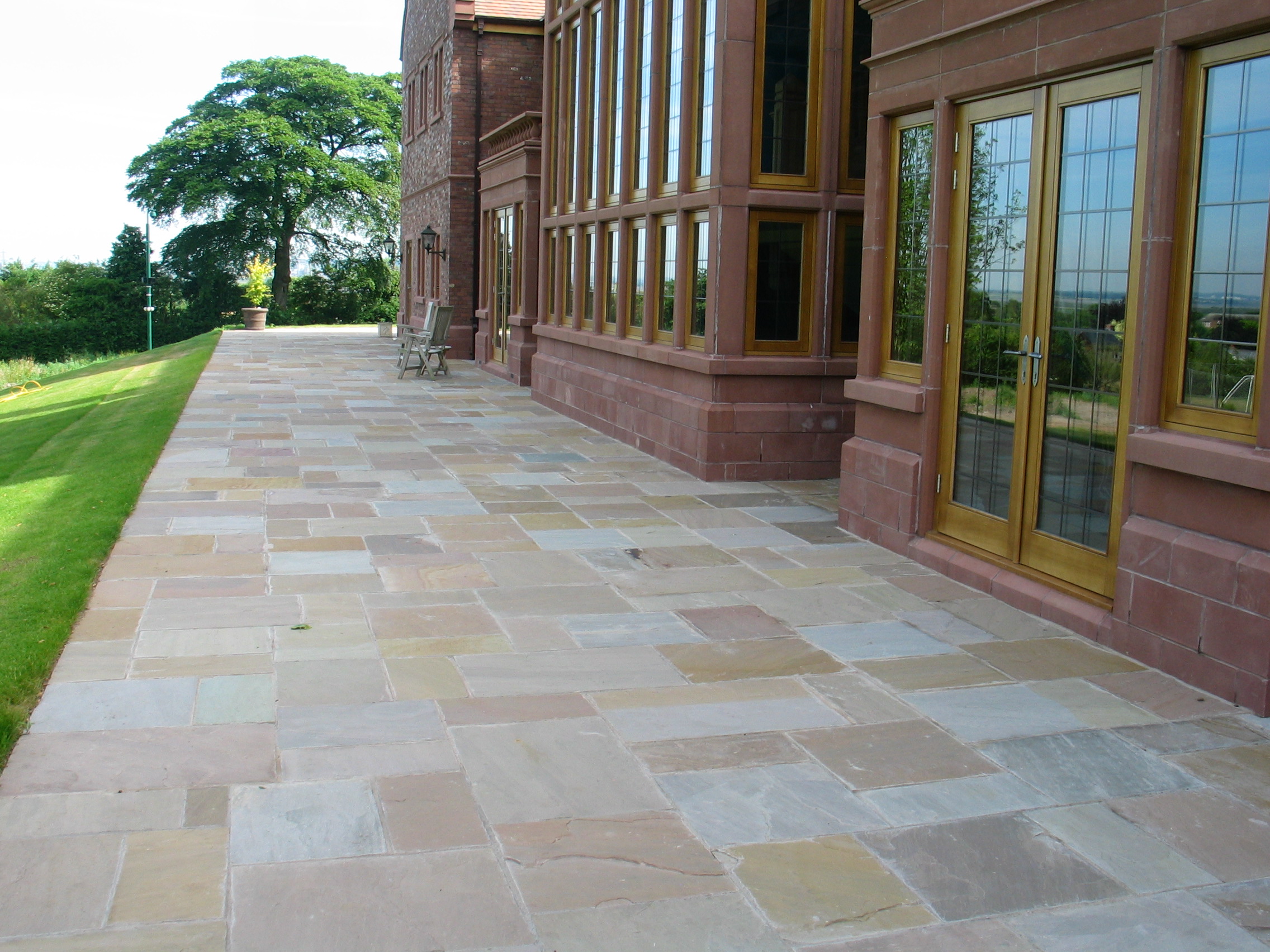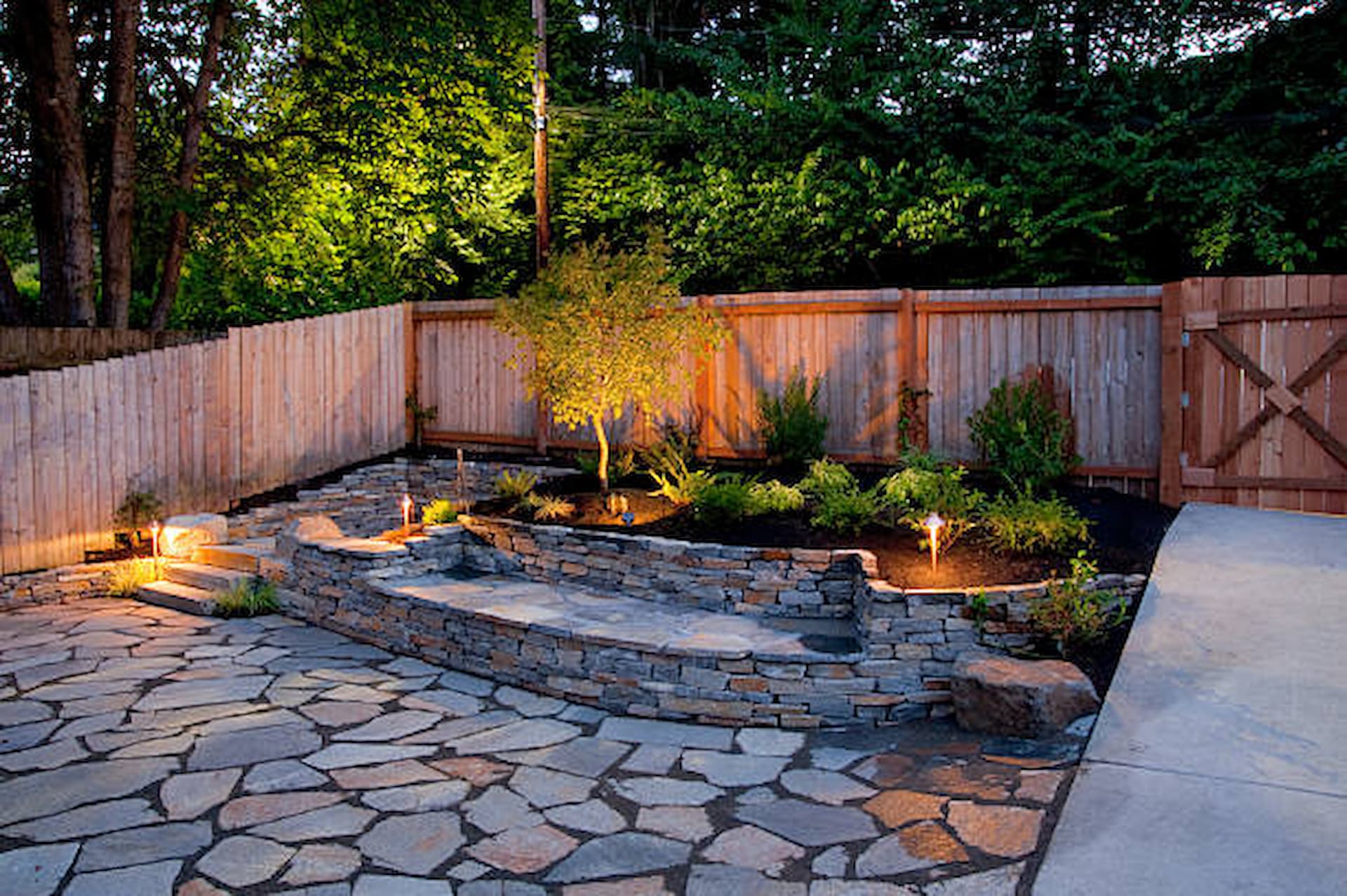Perhaps your patio or pathway is unstable, lacklustre, not to your taste or incompatible with other property enhancements. Maybe you are co-ordinating a new project in a commercial space. Meet your budget and time constraints; maximise versatility and durability with the correct high-performance paving material.
Leading manufacturers have created an array of colourful, traditional, contemporary and sophisticated solutions in materials as diverse as travertine and limestone, Indian sandstone and porcelain.
Paving specialists like Rivar Sand and Gravel have extensive paving ranges including several natural materials which deliver a unique image, form and quality; and they have created dedicated porcelain paving showrooms as the options and demand continues to grow.
You may have fallen in love with charming Indian Sandstone slabs and the potential of a porcelain tile solution, but which material offers the right paving for you?
Indian sandstone:
Pros:
Crafted over centuries by Mother Nature; no two Indian sandstone slabs are identical. From veining to tones, your installation will be unique.
A durable paving solution that copes better than most paving materials with the great British weather.
A consistent customer favourite.
Indian sandstone slabs are supplied in a range of sizes, shapes, quantities and kits.
Paving circle kits provide instant allure and there are several designs and sizes available.
e.g. Modak Rose Indian Sandstone circle set with a centre stone and three outer rings at a diameter of 2.8m.
Ethically sourced when obtained through a reputable supplier and manufacturer.
Indian sandstone slabs feature a natural quartz content which adds a special finish to all paving.
Cons:
Indian sandstone slabs will absorb some moisture; it is a slightly porous material. Discolouration and stains can occur.
Maintenance is necessary.
There are cheap and cheerful sandstone options on the market but please be aware of delamination; this is when poor quality materials split and flake. These slabs are normally so inexpensive that a warning signal should go off in your head. Quality options will not fail you.
The lowest price, lowest performance options can be unethically sourced.
Porcelain paving:
Pros:
Increasingly popular with designers and landscapers.
The perfect marriage of aesthetics and functionality.
Porcelain is a non-porous material. Porcelain paving slabs have a clay, feldspar, quartz and mineral composition; fired at up to 1400 degrees Celsius so a robust, hardwearing paving product is guaranteed.
Competitively priced.
Numerous colour and style options. Polished, textured and wood effect products are available.
e.g. Jura beige porcelain paving tiles have a sleek, stylish and attractive appearance. 20mm thickness, 600mm x 600mm slabs.
Frost, stain, watermark and slip resistant.
Porcelain paving handles British weather conditions well.
Use indoors and outside for continuity.
No sealing required.
Porcelain paving requires zero or low maintenance.
Porcelain is lighter and more durable than stone and timber alternatives.
Cons:
Cutting slabs down is tricky; the tiles are dense for porosity and strength. Try not to have too many odd sizes and shapes to fill.
Ensure that your paving choice is a wise and cost effective one by discussing your needs with specialists like the team at Rivar Sand and Gravel.



